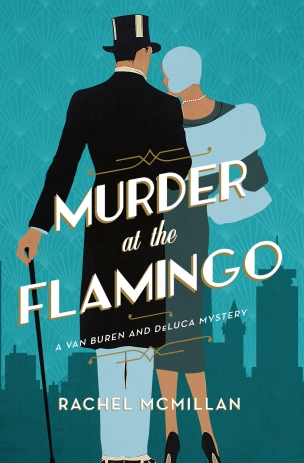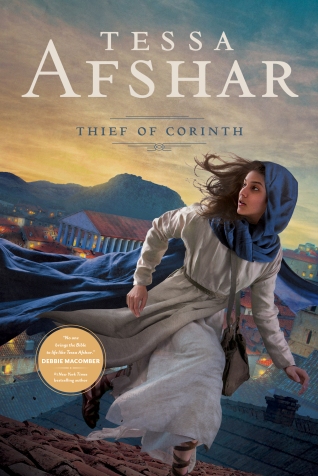 In most dual-time period novels I prefer the historical line more than the contemporary one. In Melanie Dobson’s new novel, Hidden Among the Stars, I was deeply immersed in both. In the contemporary line we meet Callie, a bookstore owner who reads stories to children and is comfortable living in the secluded nest of Mount Vernon, Ohio. This appealed to me because I live nearby. The author has definitely been here as everything she described was completely accurate from the hiking trail to the Ohio State campus. That was a bonus, however, because the world of children’s stories and the compelling backstory of Callie and her sister and their mysterious but loving mentor Charlotte kept me turning pages.
In most dual-time period novels I prefer the historical line more than the contemporary one. In Melanie Dobson’s new novel, Hidden Among the Stars, I was deeply immersed in both. In the contemporary line we meet Callie, a bookstore owner who reads stories to children and is comfortable living in the secluded nest of Mount Vernon, Ohio. This appealed to me because I live nearby. The author has definitely been here as everything she described was completely accurate from the hiking trail to the Ohio State campus. That was a bonus, however, because the world of children’s stories and the compelling backstory of Callie and her sister and their mysterious but loving mentor Charlotte kept me turning pages.
Likewise the stories of Annika and the boy she admires Max and the girl he longs to marry Luzia set in Austria at the onset of WWII was so vividly drawn and compelling that I could not say which storyline I preferred.
The stories are tied together at the beginning. We know what the mystery is about: A bookstore owner discovers a cryptic list in an old book and finds herself linked to the story of a mysterious Austrian castle, where priceless treasures were hidden in the early days of WWII. We, along with Callie, suspect that Charlotte, who spent time in an orphanage in France during the war, has some connection to this old book that no one yet understands, not even Charlotte. All the characters, even Josh the man that Callie finds herself drawn to, have pasts that make it hard for them to trust and love again, and that makes a reader root for them all.
The faith element is clear in this novel and the characters cling to the hope that Jesus brings into their lives. If I have any complaint, it’s very slight. I thought the first time Josh tells Callie about his faith it seemed more like a sermon than a conversation. However, when it comes up later it flows naturally within the story. And when you are dealing with personal loss (contemporary) and persecution of the Jews (historical) clinging to one’s faith is expected. The novel did not come off preachy in my opinion.
In the Author’s Note, Melanie explains that she indeed has been to the places she writes about. From a bookstore in a small Ohio town to a castle beside a lake in Austria, these places spoke to her and they certainly spoke to me as I read the story, not just as interesting locations, but as places where common people lived, loved, and did the best they could to overcome obstacles and evil. I loved this book. I think you will too!
Melanie Dobson is the award-winning author of more than fifteen historical romance, suspense, and time-slip novels, including Catching the Wind and Chateau of Secrets. Three of her novels have won Carol Awards, and Love Finds You in Liberty, Indiana won Best Novel of Indiana in 2010. Melanie loves to explore old cemeteries and ghost towns, hike in the mountains, and play board games with her family. She lives near Portland, Oregon, with her husband, Jon, and two daughters.
An advance copy of Hidden Among the Stars by Melanie Dobson was provided to me by the publisher for the purpose of review without any requirements. I have given my honest opinion.
***
Cindy Thomson is the author of eight books, including her newest novel, Enya’s Son, third in the Daughters of Ireland series based on ancient legends. Being a genealogy enthusiast, she has also written articles for Internet Genealogyand Your Genealogy Today magazines, and children’s short stories for Clubhouse Magazine. She has also co-authored a baseball biography. Most everything she writes reflects her belief that history has stories to teach. Cindy and her husband live in central Ohio near their three grown sons and their families, and can be found online at www.cindyswriting.com, on Facebook www.facebook.com/cindyswritingand on Twitter: @cindyswriting.

 Annie’s Stories tells the story of Annie Gallagher, an immigrant from Ireland. We first met Annie in Grace’s Pictures, the first book in the Ellis Island Series. Annie is the housekeeper at Hawkins House, a boarding house for new immigrants run by Mrs. Agnes Hawkins.
Annie’s Stories tells the story of Annie Gallagher, an immigrant from Ireland. We first met Annie in Grace’s Pictures, the first book in the Ellis Island Series. Annie is the housekeeper at Hawkins House, a boarding house for new immigrants run by Mrs. Agnes Hawkins.
 Name: Regina Van Buren (but I only get Regina from my mother’s bridge club. I go by Reggie).
Name: Regina Van Buren (but I only get Regina from my mother’s bridge club. I go by Reggie).


 We are sitting down this morning for a latte and chocolate cake with Ariadne of Corinth, who is the main character from the book Thief of Corinth. Ariadne has never tasted coffee or chocolate. How do you like your first taste?
We are sitting down this morning for a latte and chocolate cake with Ariadne of Corinth, who is the main character from the book Thief of Corinth. Ariadne has never tasted coffee or chocolate. How do you like your first taste? Tessa Afshar is the award-winning author of historical and biblical fiction whose work has received the prestigious Christy and Inspy Awards. Her novel, Land of Silence was chosen by Library Journal as one of top five Christian Fiction titles of 2016, and nominated for the 2016 RT Reviewer’s Choice Award for best Inspirational Romance. Her book, Harvest of Rubies was a finalist for the 2013 ECPA Book Award in fiction, and chosen by World Magazine as one of four notable books of the year. Tessa was born in the Middle East to a nominally Muslim family, and lived there for the first fourteen years of her life before moving to England and eventually settling in the United States. Her conversion to Christianity in her twenties changed the course of her life forever. Tessa holds an MDiv from Yale University where she served as co-chair of the Evangelical Fellowship at the Divinity School.
Tessa Afshar is the award-winning author of historical and biblical fiction whose work has received the prestigious Christy and Inspy Awards. Her novel, Land of Silence was chosen by Library Journal as one of top five Christian Fiction titles of 2016, and nominated for the 2016 RT Reviewer’s Choice Award for best Inspirational Romance. Her book, Harvest of Rubies was a finalist for the 2013 ECPA Book Award in fiction, and chosen by World Magazine as one of four notable books of the year. Tessa was born in the Middle East to a nominally Muslim family, and lived there for the first fourteen years of her life before moving to England and eventually settling in the United States. Her conversion to Christianity in her twenties changed the course of her life forever. Tessa holds an MDiv from Yale University where she served as co-chair of the Evangelical Fellowship at the Divinity School.